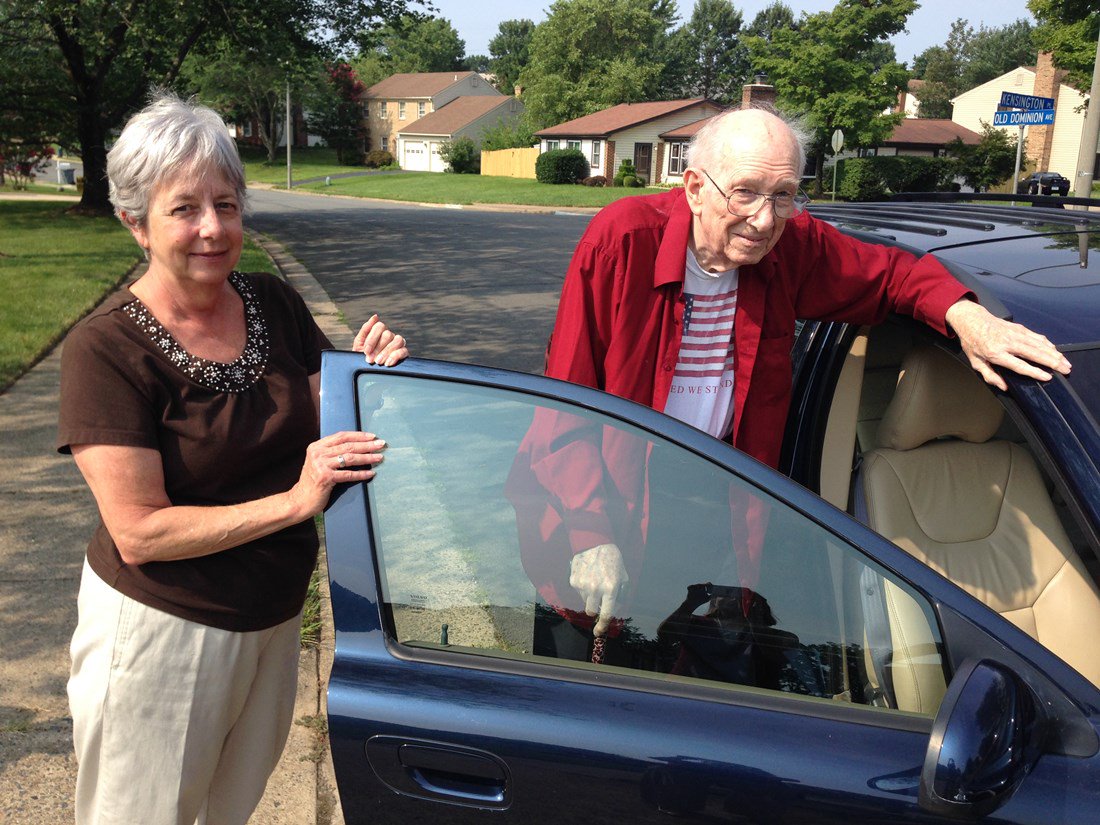What do wheelchair-accessible vans, programs to educate seniors about mobility options, and coordinating teams of volunteer drivers to provide rides for seniors and people with disabilities have in common? They all help connect people to their communities and live healthy and active lives. And, they are examples of the kinds of projects that can receive funding through the Federal Transit Administration’s Enhanced Mobility of Seniors and Individuals with Disabilities Program. At its January meeting the TPB approved $9.5 million in funding for 24 local and regional grants under the program.
Enhanced Mobility provides matching grants for non-profit organizations, local governments, transit agencies, and private for-profit providers to expand or increase access to transportation for older adults and individuals with disabilities. These initiatives generally aim to remove barriers that make it difficult for persons with limited mobility to access and use existing transportation services, or they aim to provide new services altogether to fill gaps in the existing system.
The TPB selects projects for funding every two years. Its role is two-fold. First, the TPB develops the Coordinated Plan that guides the selection of projects to receive funding and program implementation and then selects projects to receive funding. Second, through its administrative agent, the Metropolitan Washington Council of Governments, the TPB helps manage and implement the grant projects for the region.
Since 2014, the program has funded 72 projects totaling $26 million—including this year’s 24 projects.
.png)
The 24 projects selected this year span the region and provide wide-ranging services. The projects include Mobility Management services, alternatives to Metro Access, and taxi vouchers. support for volunteer driver programs, travel training, and taxi voucher programs. Additionally, sixteen projects will acquire a total of 81 wheelchair accessible vehicles to help transport residents to medical appointments, employment sites, and other activities.
Here is a deeper dive into a few of the programs selected this year:
City of Hyattsville
In 2017, the City of Hyattsville joined the AARP Network of Age-Friendly Communities. An Age-Friendly Initiative Work Group, comprised of City residents who volunteered their time to research, analyze and prioritize actions that would make Hyattsville a more age-friendly and livable community, drafted an Action Plan to improve conditions for people of all ages with a specific focus on older adults and individuals with disabilities.
Enhanced Mobility funding will make some aspects of the Action Plan a reality. The City plans to expand its curb-to-curb and shared-ride transportation service by increasing its existing fleet of wheelchair accessible buses. Funding will also support and augment existing partnerships to provide “door-through-door” and “escort services” for older adults and persons with disabilities by partnering with Route 1 Corridor Villages and initiating other steps to enhance transportation services for community members.
Lisa Walker, Chair of Hyattsville Aging in Place (HAP), a local nonprofit working to keep seniors active and engaged in Hyattsville, said “We know how important door-to-door transportation services and individualized help are to keeping Hyattsville seniors connected to the community.” “The COG grant provides a great opportunity for HAP and the City to greatly expand services to seniors and those with disabilities.”
Dulles Area Transportation Association (DATA)
The Dulles Area Transportation Association (DATA), is a transportation management association responsible for identifying and developing solutions to access and mobility issues in the greater Dulles area. Over the past 6 years DATA has been providing on-site transportation services targeting underserved and non-English speaking clients. Through the Enhanced Mobility program, DATA has been able to recruit bi-lingual volunteer drivers who are opening up access to services for populations that have been largely overlooked in the past. Now these non-English speaking residents can use transportation services that were not previously available because of the language barriers. The next objective is to begin recruiting volunteer Veteran drivers who can relate to one another. This will support an often underserved, population that truly needs transportation assistance.

DATA has been able to recruit bi-lingual volunteer drivers and will be focusing on volunteer veteran drivers next. (DATA)
Community Support Services (CSS)
CSS is a non-profit organization providing community-based services to 260 individuals with autism and other developmental disabilities every day. It will receive funding for 9 wheelchair accessible minivans to replace old vehicles that are in disrepair.
Kerry Mehailescu, an individual who receives support services from CSS, described the how important the vehicles are to her quality of life, “I'm so thankful to have new minivans…to go grocery shopping and to ride to my job at That's a Wrap. Some of my friends …need a wheelchair ramp and have lots of doctor's appointments. I live in Bethesda and the minivans make it possible for us to go to dances and to see our friends in Montgomery County.”
The Enhanced Mobility Program makes an important impact on people’s lives. These programs help connect people with their communities, help them get where they need to go, and help them stay healthy, active, and mobile.
The next solicitation for projects will occur in Spring 2021.
Learn more about the Enhanced Mobility Program.